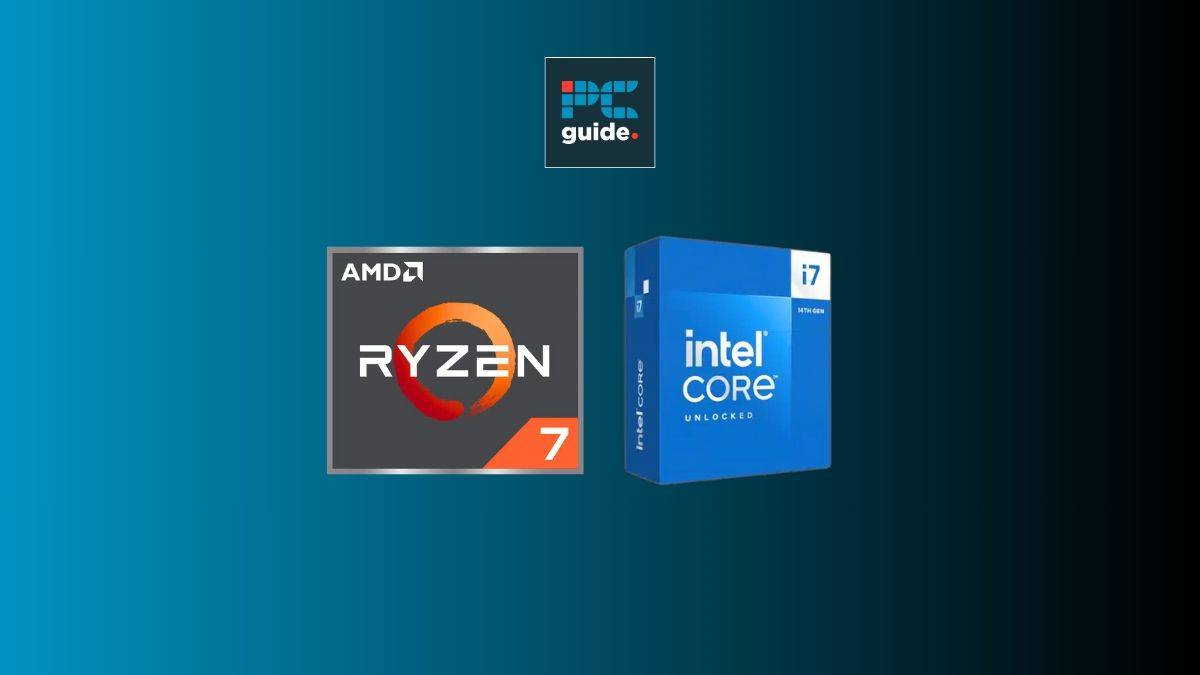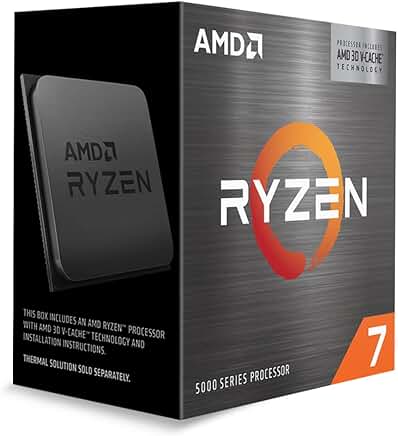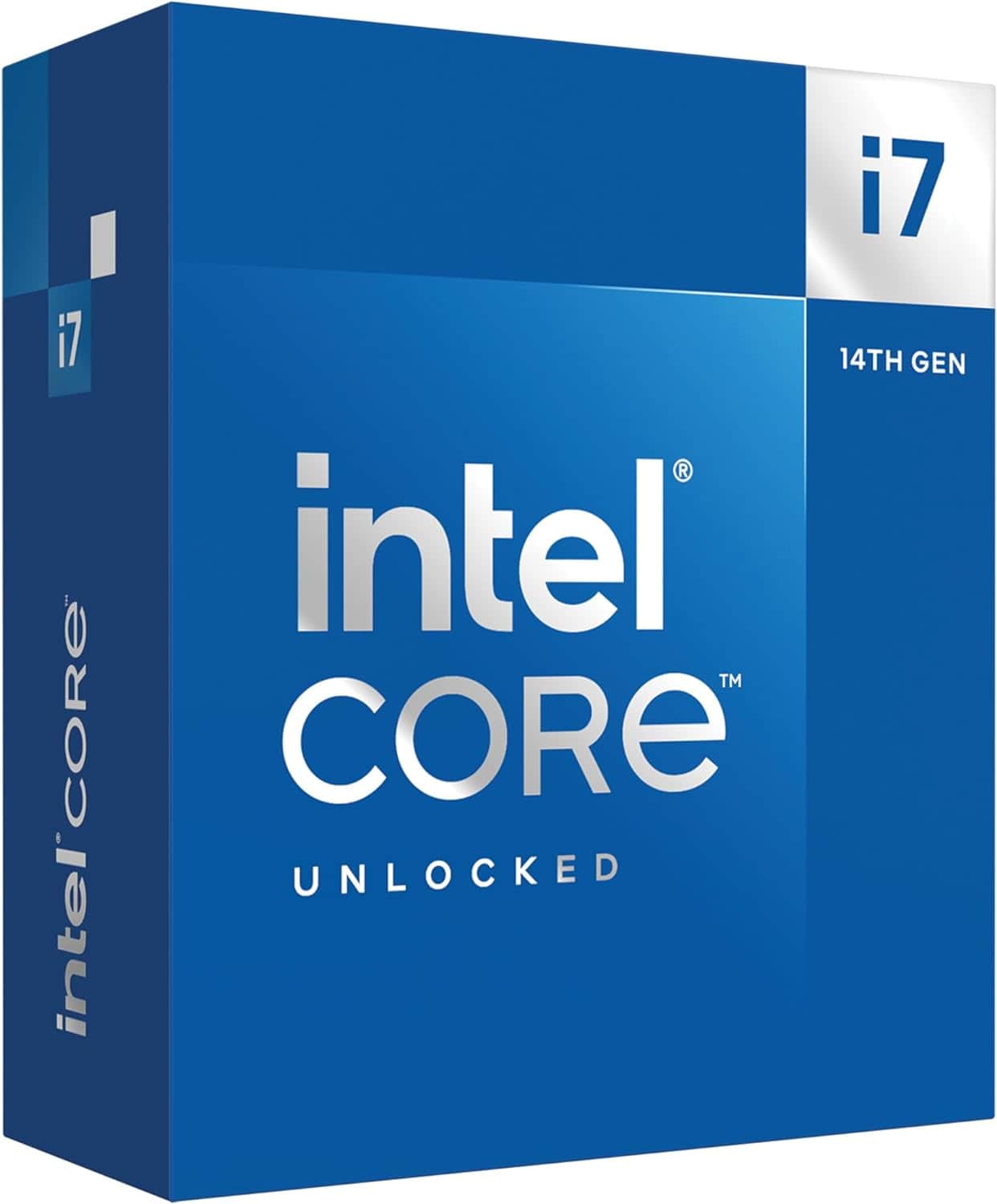AMD Ryzen 7 5700X3D vs Intel Core i7 14700K – One winner?

Table of Contents
A question that has begun to be pondered by PC enthusiasts is how the new AMD Ryzen 7 5700X3D will compete against the Intel Core i7 lineup, in particular the Intel Core i7 14700K. With a release date of January 31, 2024, there is no better time than to delve into the specs, performance, and cost of these two models. So, let’s get stuck into this article – the AMD Ryzen 7 5700X3D vs Intel Core i7 14700K.
For additional content on the new AMD Ryzen 7 5700X3D, visit our recommendations on the best motherboards and the best PSU to pair with the 7 5700X3D. Anyway, let’s continue, shall we?
AMD Ryzen 7 5700X3D vs Intel Core i7 14700K – Specs
The AMD Ryzen 7 5700X3D and Intel Core i7 14700K represent the latest offerings from two giants in the CPU market, each designed to cater to different user needs and preferences. Starting with socket compatibility, the Ryzen 7 5700X3D utilizes the AMD Socket AM4, while the Core i7 14700K operates on the Intel Socket 1700 platform. The difference in socket types limits interchangeability and upgrades between motherboard platforms.
| Specs | AMD Ryzen 7 5700X3D | Intel Core i7 14700K |
|---|---|---|
| Socket | AMD Socket AM4 | Intel Socket 1700 |
| Process Size | 7 nm | 10 nm |
| Cores | 8 | 8 (P-Cores) 12 (E-Cores) |
| Threads | 16 | 28 |
| Transistors | 8,850 million | NA |
| Base Clock | 100 MHz | 100 MHz |
| Turbo Clock | up to 4.1 GHz | up to 5.6 GHz |
| L1 Cache Size | 64 KB (per core) | 80 KB (per core) |
| L2 Cache Size | 512 KB (per core) | 2 MB (per core) |
| L3 Cache Size | 96 MB (shared) | 33 MB (shared) |
| TDP | 105 W | 125 W |
| Price / MSRP | $249 | $409 |
Process size is another critical aspect that sets these CPUs apart. The Ryzen 7 5700X3D boasts a 7 nm process size, providing efficiency and performance benefits, while the Core i7 14700K features a 10 nm process, which may affect power efficiency and heat dissipation. Core and thread counts also diverge between the two processors. The Ryzen 7 5700X3D offers 8 cores and 16 threads, whereas the Core i7 14700K provides 8 performance and 12 efficiency cores, totaling 20 cores.
In terms of cache, the Ryzen 7 5700X3D offers 64 KB of L1 cache per core, 512 KB of L2 cache per core, and 96 MB of shared L3 cache. The 96 MB of L3 cache is arranged in two different parts: 32 MB of 2D cache and 64 MB of 3D V-cache. In contrast, the Core i7 14700K features 80 KB of L1 cache per core, 2 MB of L2 cache per core, and 33 MB of shared L3 cache. Cache sizes impact data retrieval speeds and overall CPU performance.
AMD Ryzen 7 5700X3D vs Intel Core i7 14700K – Performance
Benchmark results showcase the performance disparities between the Ryzen 7 5700X3D and Core i7 14700K. In single-core performance tests/user benchmarks, the Core i7 14700K outperforms the Ryzen 7 5700X3D with a score of 3034 compared to 2005, indicating superior single-threaded processing capabilities. In multi-core scenarios, the Core i7 14700K maintains its lead, achieving a score of 21973 versus the Ryzen 7 5700X3D’s 10788, highlighting its prowess in parallel processing tasks and multitasking environments.
Clock speeds play a significant role in determining real-time processing capabilities. The Ryzen 7 5700X3D boasts a turbo clock speed of up to 4.1 GHz, while the Core i7 14700K offers a substantially higher turbo clock of up to 5.6 GHz. Higher clock speeds generally translate to faster processing and improved performance, especially in single-threaded applications. Moreover, the core and thread allocation discrepancies may influence multitasking capabilities and parallel processing tasks. From this, we can predict that the Intel Core i7 14700K will have a better overall performance capability than the Ryzen 7 5700X3D.
AMD Ryzen 7 5700X3D vs Intel Core i7 14700K – Price
When considering price and value, the Ryzen 7 5700X3D is the more budget-friendly option. Priced at $249, the Ryzen 7 5700X3D adequately reflects its performance capabilities compared to the Core i7 14700K’s $409 price tag. While the Core i7 14700K commands a premium, its higher performance potential may justify the additional investment for users seeking top-tier processing power. This one will be up to consumer choice.
What does 3D mean in Ryzen CPU?
The “3D” in Ryzen 7 5700X3D refers to the V-Cache technology. In simple terms, the positioning of the chips theoretically increases speeds on some workloads. Simply, the model has extra layers of cache stacked on top of the chips.
Final verdict
In conclusion, the AMD Ryzen 7 5700X3D and Intel Core i7 14700K cater to different market segments with distinct performance characteristics and price points. The Ryzen 7 5700X3D offers a compelling balance of performance and affordability, making it an attractive choice for budget-conscious consumers and mainstream users. Conversely, the Core i7 14700K targets enthusiasts and power users seeking uncompromising performance and are willing to invest in cutting-edge technology. Choosing between these CPUs ultimately hinges on individual priorities, workload requirements, and budget considerations.


